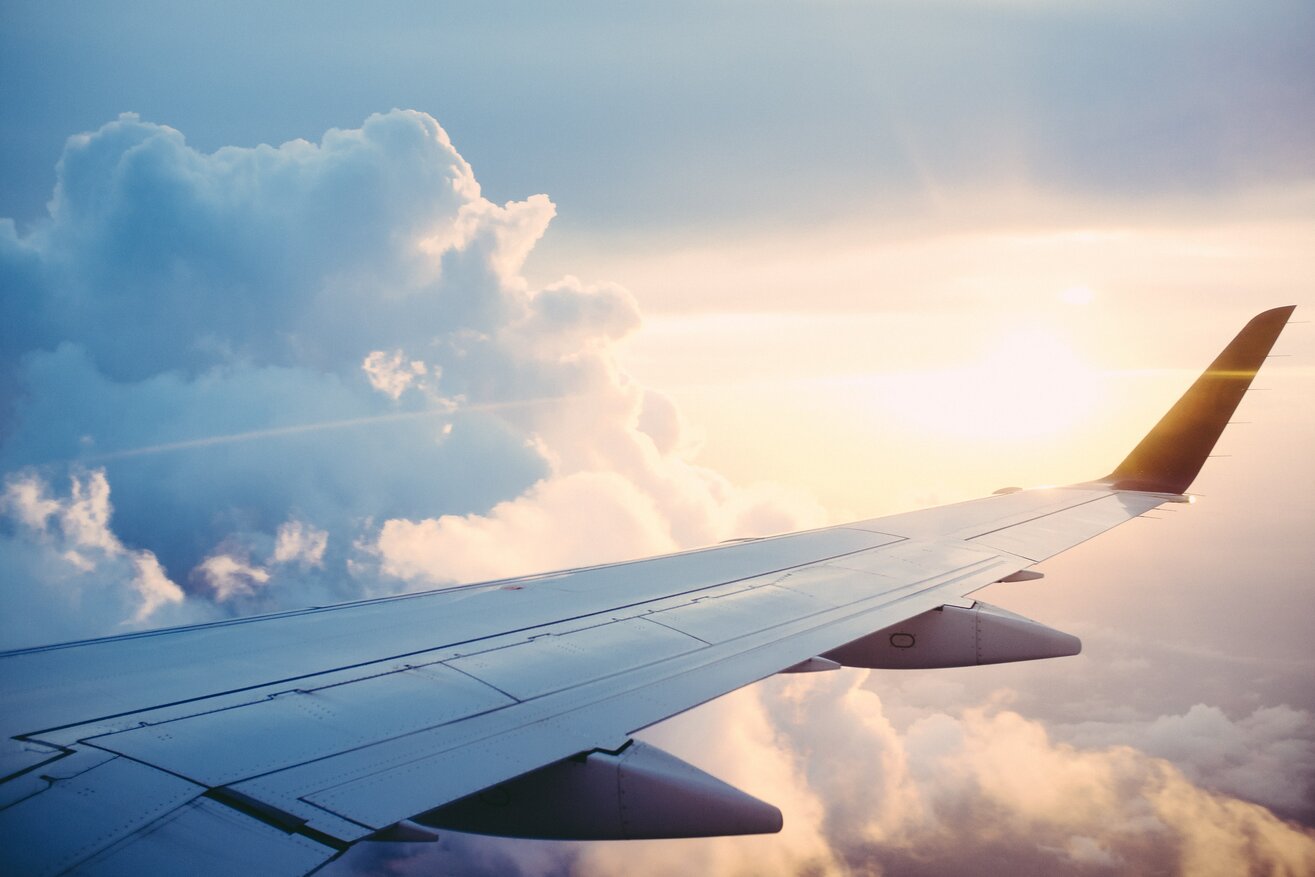The future of travel technology: A conversation with industry leaders

Andy Wright, Consultant in our Technology Practice, summarises a recent roundtable event with travel technology leaders looking to the future of the industry
2020 has hit the travel industry harder than most, with countries closing their borders and the majority of the world going into lockdown. However, we can now see some green shoots with data showing people have the appetite to get back out and travel. The mood has changed especially in recent weeks with the welcome news of a successful vaccine.
Clearly, we’ve seen some very unique travel dynamics this year, some of which could well be here to stay. In the long run perhaps there’s an opportunity to ‘build back better’, and recreate the travel industry as a more sustainable, collaborative and inclusive part of the new world.
If this is to be the case, the group of industry executives we brought together for our recent virtual roundtable event will be central to achieving this. We had great representation from all areas of the travel tech arena, ranging from the biggest players in the space to innovative start-ups, from Silicon Valley to the UK, Continental Europe and the Middle East, with companies in the OTA, Meta and GDS space, along with a couple of people from the airlines, making for a broad set of perspectives.
Before the roundtable discussion took place, I asked the group of travel tech senior leaders to complete a preliminary short survey. The aim was to garner an understanding of their thoughts on how the industry has responded to the disruption caused by the global pandemic and to ask for their thoughts on the future of travel. Throughout the discussion we reflected on the results of the survey and expanded on some of the key areas revealed in the responses.
Here is a summary of the thoughts, sentiments and ideas shared by industry leaders at the virtual roundtable:
Time horizon
The discussion began by addressing the ‘when’ - the time horizon for when travel might return. The past 12 months has been turbulent with many twists and turns making it difficult to be certain of the future and predict what might happen next. This was reflected in the group’s budgets and forecasts – many of which had changed on almost a weekly basis throughout 2020.
In the short term, our audience largely agreed (83%) that we would see a meaningful return to travel in H2 2021. Clearly the longer-term picture is more difficult to predict, which was reflected in how split the answers were on when we would see a full bounce back in the travel industry – the most common answers were 2023 (39%) and 2024 (39%) for a full return.
This complexity is only amplified by the fact that travel is not expected to return in a uniform way – for instance comparing domestic travel with international. Countries with strong domestic markets (such as China, Russia and the US) had demonstrated much greater resilience compared with regions relying upon cross-border travel (such as Europe). Equally with the impact we’ve seen on air travel, many airlines are predicted to be running at 70% capacity compared with pre-COVID levels, which could slow or even prevent a full return in the next few years.
Our discussion highlighted the highly influential role of government in the return to travel. So far, countries with inconsistent messaging and coordination have experienced irregular and low travel levels. The consensus was that leadership from government on both a country-by-country and international level has often been insufficient throughout 2020 and as a result it has contributed to a general lack of confidence in travel from customers.
What changes in behaviour from 2020 are here to stay?
-
Modal shifts:
While airlines have had a challenging year, rail travel has seen a faster bounce back in a number of markets. For some, this has been a result of increased domestic travel, though it has varied depending on government messaging and decisions to restrict travel in, out and around the country.
With the seismic shift in working patterns that we’ve seen, the change in the daily commute presents some challenges to the rail travel industry. That said, there are other behavioural shifts that are likely to increase levels of train travel in the long run; these include an increase in the ‘staycation’ over international travel (44% of respondents agree), and a greater focus on sustainability (56%). Strong growth is expected in high-speed rail, with some predicting it could double in the next 20 years.
-
Booking flexibility:
Our survey showed that over 61% of respondents agree greater booking flexibility will be here to stay post-Covid, and as a result we would see it become default rather than a ‘nice-to-have’ for the industry.
The disruption to travel earlier this year and the disarray it caused with refunds and rebooking has certainly increased the importance customers feel booking flexibility has when planning their next holiday/business trip. This has been further accelerated by the move towards last-minute travel bookings and shortening the time between booking and travelling. Travel platforms must adapt their offering accordingly to give their customers confidence.
-
Business travel:
Business travel has been severely impacted this year and there are signs to suggest there will be a significant reduction in the long-term. The success of the shift to remote working, seamlessly pivoting internal and external activities online, will see more and more companies making a more permanent transition to flexible and remote working.
There are also new added complexities that the industry and companies must navigate. On the call, one leader referenced the new law in Italy which makes companies liable for any employee that contracts the Covid-19 virus while on a business trip.
However, there are a number of arguments to suggest some resurgence of business travel. Many of our group noted that some activities are simply not as effective on Zoom, for instance strategy sessions, building customer relationships and hiring.
Half of the survey respondents believe we will see business travel recover to between 50-75% of the levels we had pre-pandemic. Bill Gates has an even bleaker outlook, predicting that it would return to less than 50% of pre-COVID levels. If this holds true, it could significantly impact airlines, rail companies and other travel operators, with business travel often driving profitability. We have to ask whether this will change pricing structures and ultimately mean the end of low-cost travel?
Innovation
After the financial crisis of 2008, there came a wave of innovation in the travel industry – including the advent of Airbnb, whose recent $100bn IPO demonstrates its game-changing impact on the industry. We are likely to see similar opportunities arise from the adversity following 2020 – possibly even bigger ones considering the seismic changes of this year.
We discussed the innovations that could change the market:
-
Inspiration and the role of digital platforms:
How the consumer interacts with travel products is changing. The rise of social media, as well as fintech platforms like Revolut, has brought new possibilities for engaging with customers. The digital platforms provide companies instant access to customers and an opportunity to bring the point of purchase closer to the point of inspiration. The industry is moving towards new forms of marketing, focusing on how to excite customers with a video or picture and integrate the ability to book the trip there and then in-app. Many are watching to see what approach Google, Facebook and Amazon take towards travel in the future, something that could send waves through the industry given their respective spheres of influence.
-
A seamless, contactless experience:
The global health crisis has amplified the need to move towards a contactless travel experience. The travel industry has been moving towards digitisation slowly, but this has now been sped up by the need to protect customers. Reduced waiting times, biometric IDs and paperless journeys all have their part to play. This shift also benefits the overall customer experience by paving the way for greater personalisation with increased data touch points.
Collaboration
A key theme from our conversation was that collaboration in the travel industry thus far has been inadequate. We discussed what in practice could be done to improve collaboration:
-
Connectivity:
The future of the travel industry is connectivity, but it is notoriously fragmented. From a technology perspective, there is a minefield of API structures. Establishing best practice, consistency and enabling systems to talk to each other could make a very positive impact.
-
Consistency:
There is great difficulty in rolling out new technologies and alternative modes of operation as there are discrepancies operator to operator, airport to airport and regulator to regulator. The industry must therefore become more aligned in its vision for the future to ensure it can move forward and deliver a more seamless travel experience for the customer.
-
An industry-wide effort:
The industry has been presented with an opportunity to reinvent itself, but there is a recognition that this is too big for any company to tackle alone. It requires cooperation from across the industry, as well as support from the government. We therefore put it to the group that perhaps collaboration is in fact the innovation the industry needs to see.
The 'holy grail'
We then discussed what the industry could come together and achieve – what the ‘holy grail’ could be if all were able to work together:
-
Targeted, personalised travel products:
The travel tech industry needs to move in the same vein as many other industries, curating their offering to the personal preferences of the customer. It is a move with many pitfalls, with companies like TripAdvisor having tried unsuccessfully to launch such a product. But a more customised experience with a choice of two or three tailored products rather than a long list of potential options would give the customer a more seamless and stress-free experience.
-
A sustainable future
In our conversation, we discussed the common goal of achieving a sustainable future. The industry must play its part in helping people to travel responsibly, and profit margins must be balanced with controlling impact on the environment.
Rallying around the customer, and coming together to achieve a sustainable future, seems to be a fitting prize for the industry to strive towards.
You can read the full results of the survey here
For more information please contact Andy Wright.






